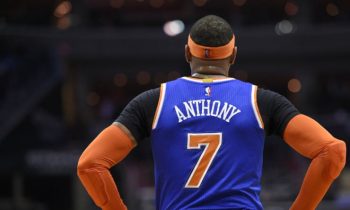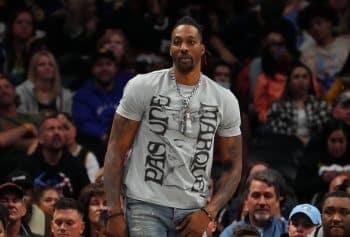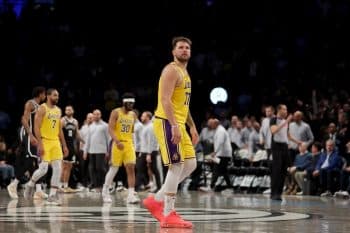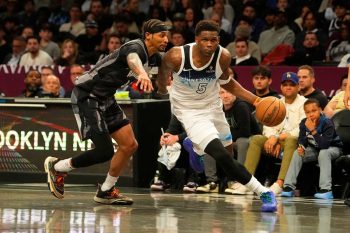FAD
Dunc’d On: Union Request For Stars to Take Maximum is Puzzling
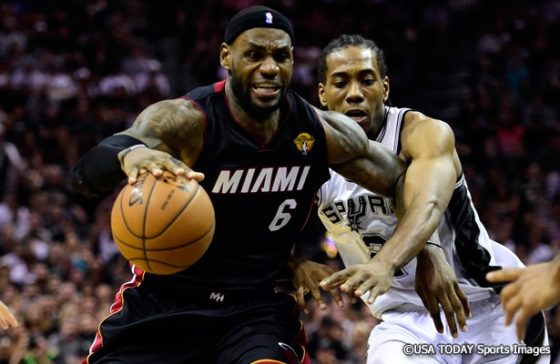
When LeBron James, Dwyane Wade, and Chris Bosh all opted out of the last two years of their $20 million plus per season contracts with the Miami HEAT, the catcalls started immediately. The assumption was that the stars would all agree to take less than their maximum salaries to facilitate sorely needed additions to the HEAT roster, and many decried their desire to take less as somehow unfairly gaming the system.*
*If fans really want to be outraged over this, they should blame the owners who instituted the maximum salary back in 1999. If stars had to choose between $40 million a year and $15 million, “taking less” would become a lot more uncommon than it already is.
But the oddest angst of all has some from an unexpected quarter: the NBA Players’ Association and certain prominent agents. According to a Sporting News report (which is worth reading in its entirety), the union believes it sets a bad precedent if the best player in the league does not take the most he can get. This is ostensibly part of the reason James has “reversed course” and now is demanding a maximum salary. The NBAPA is so concerned that it is apparently contemplating a union-wide memo to impart this idea.
The reasons cited by the NBAPA and agents quoted in the report do not really hold water though. The newest Collective Bargaining Agreement guarantees the players between 49 and 51 percent of Basketball Related Income (BRI).* The system ensures that each team must spend up to 90 percent of the $63.2 million salary cap, or pay a penalty to the players on the roster if it does not.
*The system by which this occurs is too complex to get into here, but is well-explained by our Larry Coon.
In the grand scheme of things, it matters little that certain players may take less, as that slack will be taken up by the salaries that must be given to other players to reach the minimum salary. In practice, almost all teams spend up to the cap, and many spend well over it. Indeed, the union’s reported insistence that more money go to the highest earners actually flies in the face of one of the established tenets of happiness research, namely that the marginal utility of a dollar decreases as earnings increase. I.e., two players making $10 million a year creates more overall happiness than one making $20 million and another making the minimum.
Some of the upset communicated in the article was over the fact that players should not have to sacrifice further to appease owners who already won the last CBA negotiation which installed the current punitive luxury tax. But the money foregone by stars taking less generally does not go to the owners, but to other players. In the case of the HEAT, if James, Wade, and Bosh all made the maximum it would leave Miami very few avenues under the CBA to add additional salary and improve the team. Players and fans can demand that an owner “go into the luxury tax,” but that kind of spending will not necessarily facilitate massive team improvements.*
*Tax avoidance is, however, a legitimate criticism at the margins, where the HEAT cut costs in 2013-14 by amnestying Mike Miller, trading Joel Anthony, and refusing to add a player with the Tax-Payer Mid-Level Exception. But that is not really related to the idea of James taking less when the team is under the cap-if the HEAT sign anyone using cap space they are likely limited to spending up to the cap plus the $2.7 million Room Exception regardless of how much or little the Big Three take.
If the union is really concerned about maximizing player payments, what it should be doing instead is encouraging stars to re-sign with their original teams who are over the cap using Bird rights, especially with so many teams having cap space around the league. Carmelo Anthony provides a great example. If he signs elsewhere, the Knicks will still be far enough over the cap that they could only spend their cap exceptions totaling about $7 million rather than the $22 million or so it would take to re-sign Anthony. But if he stays, that $22 million gets spent on him and the $22 million it would have taken him to sign elsewhere also gets spent on someone else. By re-signing in New York, Anthony would cause an additional $15 million or so to get spent on players. Those sorts of transactions would help push the players closer to 51 percent of BRI than 49 percent, but even that is a relatively small change.
Thus, this kerfuffle by the union appears misguided. When stars do not take the absolute maximum, the balance generally goes into the pockets of other players, a circumstance which creates more overall happiness among its members.
